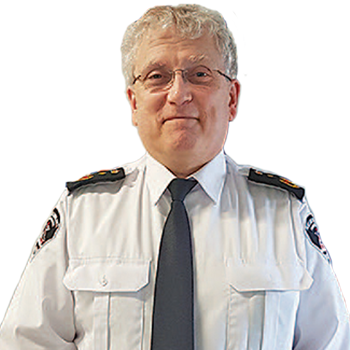While watching TV Joe suddenly begins to have an excruciating pain in his chest. He turns to his wife of 43 years and says, “Martha I think I’m having …” and his voice trails off. Joe slumps over on the couch just as Martha walks into the living room.
“Oh my gosh, Joe what’s wrong,” she says as she frantically tries to wake him.
Grabbing the cordless phone, she dials 9-1-1 and is transferred to the communications specialist at Parkland Ambulance Care.
“Paramedics are on the way,” a calm voice tries to reassure Martha. “Do you know how to do CPR,” the voice asks?
“No,” she replies
“Let me help you,” the voice reassures her.
Too often the situation described above occurs in living rooms across our city. Most cardiac arrests will happen at home to someone you know such as a spouse or grandparent. For those situations that happen in public places such as a workplace having trained rescuers is not only important it’s good business.
During the month of November Parkland Ambulance and many other agencies will be promoting CPR and encouraging everyone to take a course. In as little as one minute, yes minutes you can learn a skill which when used may save the life of someone you know or give a stranger or fellow co-worker a chance to enjoy life in a brand-new way.
Compression only CPR is as easy as putting one hand on top of the other hand and placing both on the center of the person’s chest and pushing down. That’s it. Is that easy!
When sudden illness does strike your prompt, action can mean the difference between life and death. Recognize these symptoms and take immediate action:
• Heavy squeezing chest pain
• Nausea or vomiting
• Dizziness
• Pale, moist skin
• Denial – that this cannot be happening to you.
If you or someone you are with experiences any or all these symptoms immediately stop all activity, rest, take any prescribed medications and dial 9-1-1. The paramedics of Parkland Ambulance Care will respond quickly to your emergency. But your actions are important. Do not be the face lost in the crowd that will not help. Do something, anything, as anything will make a difference.
If you have an existing heart condition, your physician has likely given you instructions on what to do prior to calling for help or going to the emergency room. There is scientific evidence to support chewing one or two ASA if you think you are having a heart attack. Consult your physician for your exact medical needs.
If the person suddenly loses consciousness and is not breathing, CPR must be started immediately. If the public or workplace has an automated external defibrillator (AED) send someone to get it. Follow the instructions of the machine or from the trained bystanders to use the AED effectively. Early CPR combined with Early Defibrillation followed up by rapid paramedic response will save lives. If you did nothing, for every minute that person was left lying on the floor not breathing and with no pulse their chance of survival decreases by 7-10%.
Good health such as getting some exercise, eating well, staying home when sick, keeping up to date on your immunizations all can contribute to good heart health. Winter season when we spend more time indoors increases the risks of cough and colds. Oddly respiratory problems which decrease your blood oxygen might contribute to poor heart health. Conditions like getting pneumonia significantly can reduce your breathing capacity. Staying healthy is important!
Learn CPR and First Aid. We can help! We offer regular first aid courses. Give us a call. Maybe your group wants a simple community presentation. We can help with that too as not everyone needs “certification”, but everyone should “know” what to do. In an emergency time is precious. Every little thing that you can do can and will make a difference. We’ll do our part, but we can use your help too!


